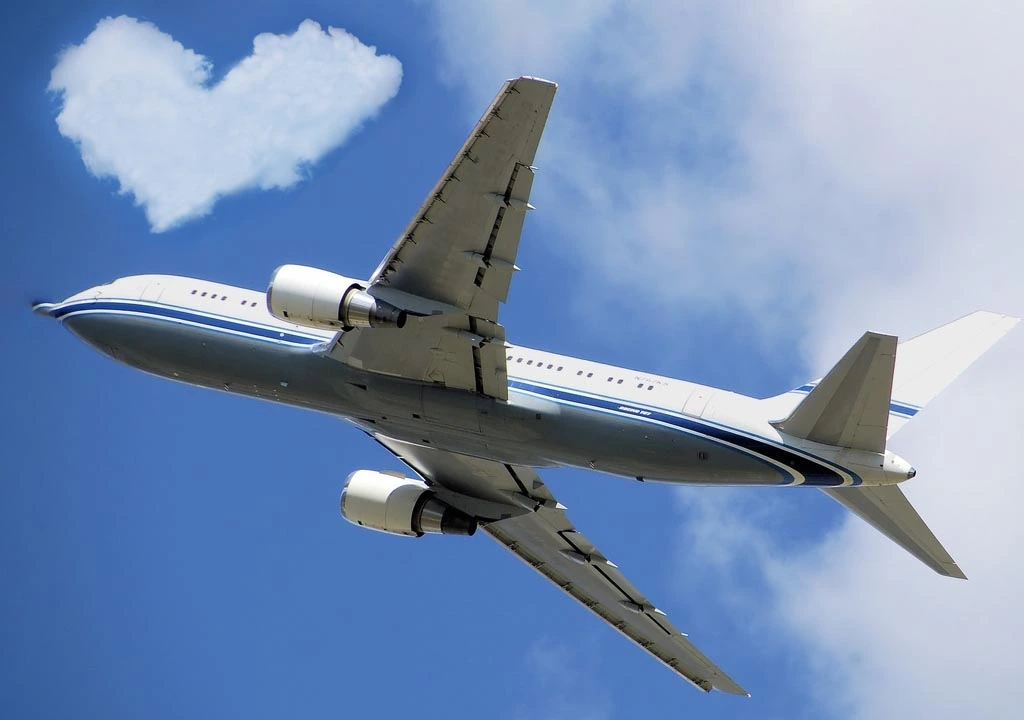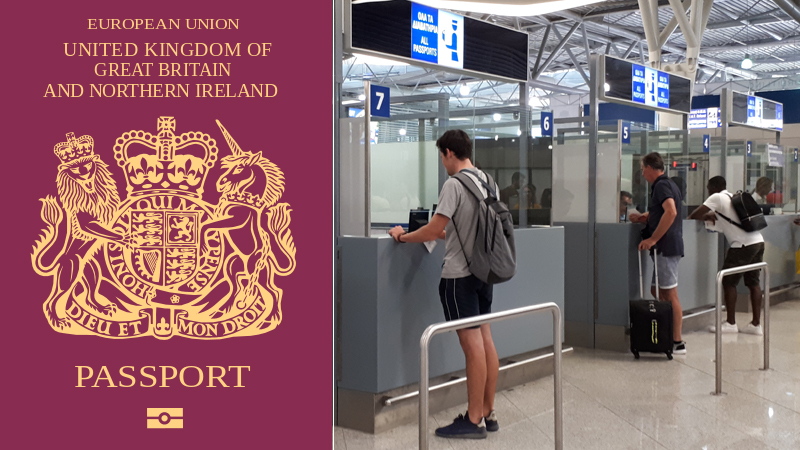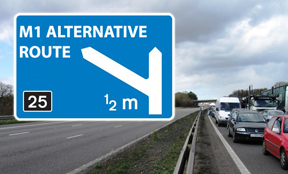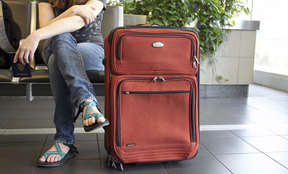
After suffering a serious 'widow-maker' heart attack and having two stents fitted, I know that the thought of stepping on a plane can fill you with terror. In fact, I believed I would be too terrified to ever fly again - until I found out the truth about flying after a heart attack.
So, forget the sites that are written on the subject by people who've never suffered a heart attack - read on to find out the facts about flying after an attack from someone who knows.
Having a heart condition or recovering from a heart attack can seem daunting when it comes to flying, but here I look at advice that helped me fly again and tell more about my own journey back into the air.
Let's be clear, though, my best bit of advice I can give is that you should always talk to a medical professional regarding flying with a heart condition before you book.
Here’s Pete Barden's at-a-glance guide to air travel for travellers who’ve suffered a heart attack or undergone cardiac surgery.
-
TABLE OF CONTENTS
-
Should I fly after a heart attack or other heart condition?
-
Flying after a heart attack (myocardial infarction)
-
Flying if you have angina
-
Flying with heart failure
-
Flying with a pacemaker or cardioverter defibrillators
-
Flying after heart surgery
-
Flying with high blood pressure
-
What if I have a heart attack on a plane?
-
Where to pack medication for my heart
-
What airlines say about flying with heart problems
-
'I had a heart attack and thought I would never fly again'
 Have you or someone
you know had a heart attack or other related condition? Here's some information to help you get
back in the air (Credit: Pxhere.com)
Have you or someone
you know had a heart attack or other related condition? Here's some information to help you get
back in the air (Credit: Pxhere.com)
Should I fly after a heart attack or other heart condition?
Of course there are circumstances related to heart health that will prevent you from flying, but in many cases a previous heart attack or other coronary condition should not be a barrier to booking your flight tickets.
The British Cardiovascular Society has published guidelines on air travel for those with heart-related conditions. This report concluded the vast majority of people with a stable heart condition should be able to fly safely, but some could need help in the airport and additional in-flight oxygen.
Those with unstable heart conditions are more likely to hold off from flying until they are more stable through medication, surgery or other methods of management.
Check with your doctor to see where you are on this before you book a seat – and ensure you buy travel insurance – declaring your heart condition – as soon as you book your trip to ensure maximum protection if something should change to prevent you from flying.
Flying after a heart attack (myocardial infarction)
For many people who have had a heart attack – where a coronary article becomes blocked – it is often okay to fly after a period 7-10 days if there were no complications.
If the artery was rapidly cleared using the likes of angioplasty and stents, it is possible that the person could be fit to fly in just 3-4 days.
However, if there are complications, this period of time could be extended, so always speak to your medical specialist to ensure you are fit to fly before booking.
Flying if you have angina
If your symptoms are stable – where the chest pain is predictable and occurs through gentle exercise – then angina is not likely to stop you from flying.
However, if the condition is considered to be unstable, where it comes on during rest, then you may be advised not to fly.
Have a chat with your doctor to discuss your angina and suitability for flying.
Flying with heart failure
Heart failure is typically where the heart muscle is weakened and, to varying degrees, it less able to efficiently pump blood around the body. However, if the person is managed efficiently and the heart failure is largely stable, then it will not be a bar to flying.
Breathlessness is a common symptom of the condition, so a little extra help may be needed at the airport, but would not usually be a bar to flying – just speak to the airport support provider to discuss the likes of transport within the terminals.
If the breathlessness develops while at rest, you are likely to need to get a certificate that you are fit to fly from your doctor. Speak to your airline for more information.
Flying with a pacemaker or cardioverter defibrillators
Flying with a pacemaker fitted to control your heart rhythm should not be a problem for most. The devices are now designed not to be affected by airport screening – but always mention you have one fitted – and they won’t interfere with on-flight control systems.
Such devices have been known to set off security alarms, so ask your doctor to provide a letter with details of the device. You could be asked to pay £10-£30 for this from your regular GP.
Flying after heart surgery
If you have recently undergone major surgery, this could be a coronary artery bypass or replacement of a heart valve, you should wait a minimum 10 days – and until you can manage normal daily activities before flying.
You may need to ask for additional help at the airport with carrying luggage or travelling through the airport terminal.
Again, you will need to speak to your surgeon or specialist for more advice on your case.
Flying with high blood pressure
Blood pressure is unlikely to limit your ability to fly. However, it is advisable to get extremely high blood pressure stabilised regardless of travel plans.
Low blood pressure can be a problem for some, too, as it can cause fainting and other issues. Speak to your doctor if you suffer any symptoms from low blood pressure.
What if I have a heart attack on a plane?
If someone has a heart attack or other serious incident on a plane, it is likely the aircraft will divert to the nearest airport to seek expert medical assistance.
In the case of cardiac arrest, which requires instant action to save a life, most airlines ensure their planes are carrying a defibrillator which can be used by on-board crew in an attempt to save the patient and restart their heart and get them expert treatment on the ground.
Where to pack medication for my heart and other conditions on a plane?
Carrying heart medication on planes can land you in trouble if you don’t follow the rules, Here’s what major airlines flying from the UK say about packing medication when flying.
Subscribe for free motoring and travel news here - support independent journalism
What airlines say about flying with heart problems
Air New Zealand
What the airline says: Remember to pack medications you might need at the airport, on the plane or on arrival at your destination in your carry-on baggage. Civil aviation rules now require medicines to have a pharmacy printed label. For liquids in containers over 100mL, we recommend you also carry a letter from your doctor.
American Airlines
What the airline says: American Airlines will typically let passengers carry medication in the cabin, but there are several caveats. See the full list here from the TSA.
British Airways
What the airline says: If you need to take medication, including liquid medication or syringes, pack it in your hand baggage too (if possible, in its original packaging). To avoid delays at airport security, also take a prescription or supporting letter from your doctor that confirms it is prescribed to you.
easyJet
What the airline says: If you’re putting medicines in your hold luggage, you must pack them separately from any other items and provide a doctor’s certificate confirming that you need them while you’re away from home.
Jet2
What the airline says: Passengers should keep essential medication in their hand baggage and not check it in to the aircraft hold. We also recommend that a doctor’s note accompanies all medication
Ryanair
What the airline says: You are allowed to carry liquid medicine as required for your flight. The medicine does not need to fit in the transparent bag but you should have it ready for inspection by airport security. Passengers are permitted to carry syringes in the aircraft cabin, if they are needed for medical reasons (for example a diabetic passenger). However, passengers should carry a doctor's letter confirming their requirements.
TUI
What the airline says: You can take medication on board your TUI flight. However, you'll need to make sure you bring a doctor's letter or repeat prescription, too - especially if your medication is a liquid, as you'll need this at security.
Virgin Atlantic
What the airline says: Make sure you have a letter from your medical practitioner confirming the type of medication (including the generic drug name), with prescribed doses, what the medication is for and any other medical items required, such as syringes or EpiPens. The medication should be in its original packaging, pharmaceutically labelled to clearly identify it as being prescribed for and belonging to you.
Wizz Air
What the airline says: When carrying medication in a liquid form, please check the safety regulations for carrying liquids on board. In cases where you need to carry essential medications, such as insulin, you will need to have a medical certificate with you confirming that you need the medication and present this document at the airport security if required.
'I had a heart attack and thought I would never fly again'
Journalist Pete Barden speaks out about the effects of having a heart attack and flying. The following interview is his experience of travelling by plane after suffering a serious heart attack - known as a 'widow maker' by medical professionals.
How old were you when you had a heart attack and what happened?
I was in my mid-30s and it came as a complete shock one night as I sat eating a meal after going to the gym.
My left anterior descending artery suddenly blocked in a type if heart attack that is nicknamed the ‘widow maker’ by the medical profession,
I was lucky and spent two weeks in hospital. However, I was left with an aneurysm on the heart chamber, which puts me at risk of further blood clots that could block other arteries.
So how did it affect your travel plans?
I was completely terrified by the idea of flying and had decided I would not fly ever again – worried that I would be unable to access vital medical help at 39,000ft if the heart blocked again (an irrational fear that many people experience after an attack).
I also needed to have regular blood tests to see if my blood thinning medication – to prevent clots in the heart – was making my claret too thin and leaving me open to internal bleeding etc.
Additionally, getting travel insurance from my usual firm was impossible – they said they would not insure me.
Have you managed to deal with the problems and get back in the air?
Thankfully yes – as much as I loved holidays in Cornwall and Wales – and I have now flown to the likes of Greece, Spain, Italy and Australia, which was a big milestone.
How did you get over the anxiety?
I spoke to my doctor and he prescribed a low dose of Valium, which really helped on the plane. This took away the anxiety and stopped all the phantom pains from my chest that it brought.
Additionally, the fact that pretty much all planes have defibrillators on them is another hugely comforting thought should the worst happen.
What about medication and blood checks?
I have to take about six types of medication, so carrying a lot of drugs on planes is always a bit of worry, so I always keep them in the original box – along with getting a letter from my GP explaining why I have them. The letter cost me £10 but is worth it.
You should also remember, going back to my Valium point, that having this could get you into big trouble in some countries so do check first.
When it came to blood checks, I purchased a little machine that tests my blood – it’s like one of those finger-prick machines that people with diabetes can use. Again, you really should get a letter from your doc to show security officers at airports.
Did you manage to get travel insurance?
Yes. I took a look around and got specialist travel insurance and it typically costs around £50 for me and my family of five for a week in Europe – but make sure you do a proper declaration to the insurer or they won’t want to pay if something happen.
If a company turns you down, then take your business elsewhere. The British Heart Foundation offers more information on finding travel insurance if you have a heart condition.
Any other tips?
Yes, book some airport parking as it takes the stress out of having carry bags on trains etc and book an extra legroom seat as this can help you stretch your legs and exercise a little while sitting on the plane - helping to avoid blood clots (DVT) developing in your legs. I would go for on-airport parking and avoid the off-airport users who are not always as professional as you would like - one firm based near London Gatwick left me waiting for a transfer coach for over an hour in freezing conditions.
Ask Pete a question about flying after heart attack?
Just send your question to pete@petebarden.co.uk for his personal answer. Remember, Pete is not a doctor so will just tell you about his experience of travel after having a serious heart attack.
This article is for general guidance only. Speak to a medical professional for individual advice on your situation.
Most-read travel content
Take a look at more of our top travel-related news and guides here...
-
Do I need six or three months on my passport for Spain, France and other EU countries?
-
Do I need an International driving permit for France, Spain and other EU countries?
-
Who can sign my passport photo... can teaching assistants sign for kids?
-
Do I need a new passport now I have put on weight, dyed hair, gone bald etc?
-
How much do passports cost now we've left the EU?
-
Can my child or other adult fly with chicken pox - what the airlines say
-
Can I change a name on a plane ticket and how much will it be?
-
How much are fast-track security lanes at UK airports and how to book them
-
Can I fly with a broken leg or other bone?
-
How much are extra legroom seats on your flight - revealed here
-
Where can I charge an electric car at UK airports?
-
Are there any free drop-off points at UK airports?
-
What airlines have defibrillators on their planes
-
What does SSSS on your boarding card mean and should you be worried?
-
What help is there for travellers with autism at UK airports?
-
Do I need a V103 certificate to drive my car abroad?
-
Do I need to get a new passport if I move home?
Author: Pete Barden:
Twitter: @pete_barden
Pete Barden is a qualified journalist who has written and produced for publications including The Sun (thesun.co.uk), New Statesman Media Group, Whatcar? (Whatcar.com) Stuff Magazine (Stuff.tv), Fastcar Magazine (Fastcar.co.uk), Maxim Magazine and UK broadcast stations within the Heart network (Formerly GCAP). Pete specialises in motoring and travel content, along with news and production roles. You can find out more about Pete Barden on LinkedIn.
Read all articles by Pete Barden











